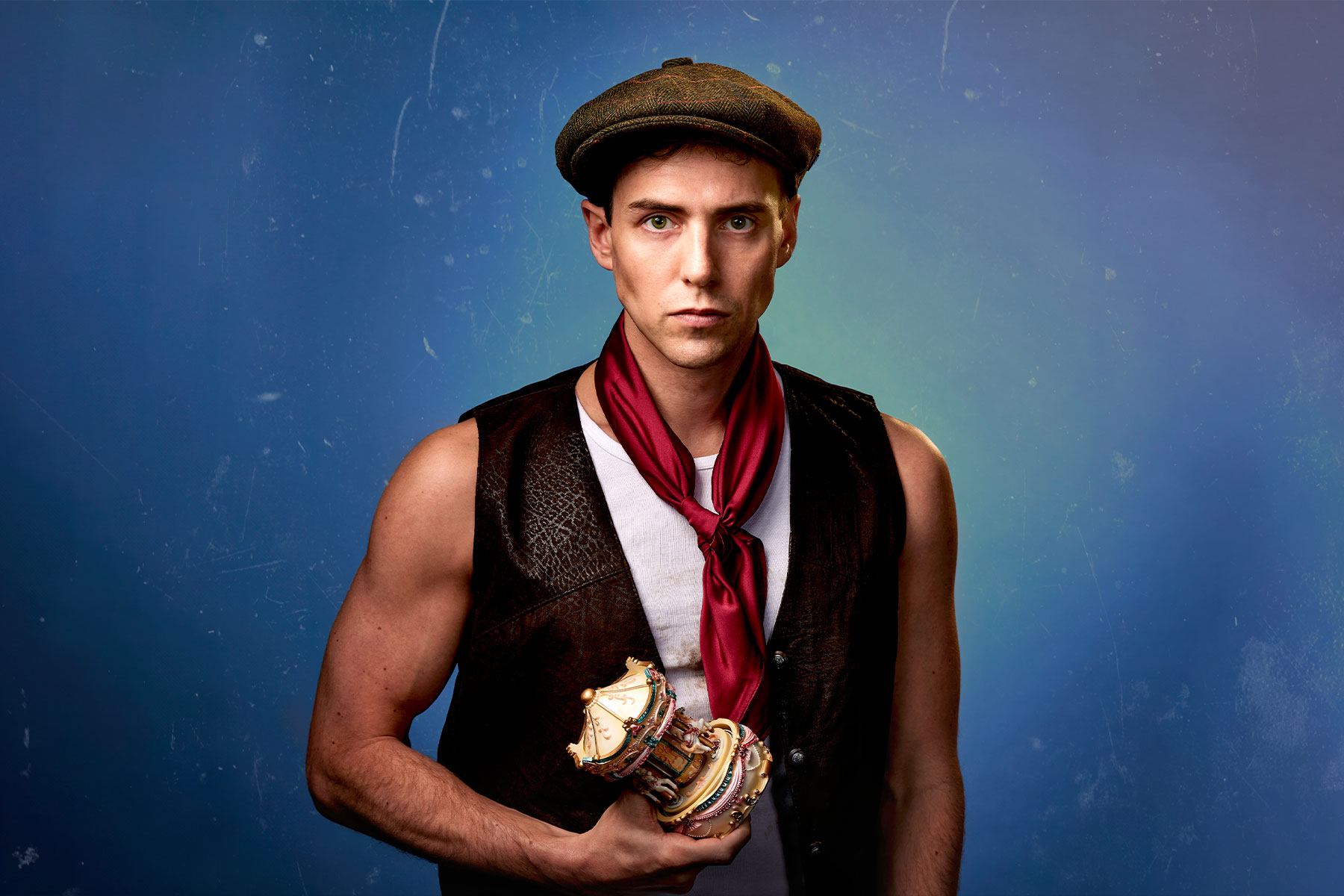The Winter’s Tale (tour – Ipswich)
Part of the fault lies with the speaking of the verse; it may be due to an effort to make it all sound natural but too many of the speeches – especially those of Vince Leigh as Leontes – descend into confusion. What then becomes interesting is the way that emphasis is thereby thrown on those inhabitants of Sicilia’s court and Bohemia’s villages who facilitate the plot but don’t usually appear to dominate it.
Two performers stand out. One is Golda Rosheuvel as the outspoken Paulina and – in this reading – the old shepherdess who discovers the abandoned Perdita and brings her up; Rosheuvel is also Time, who bridges the 16-year gap between Leontes’ condemnation of his wife Hermione and the love between Perdita and Florizel. The other is John Hodgkinson doubling the roles of the courtier (and Paulina’s husband) Antigonus and the rogue pedlar Autolycus. Both actors speak with intelligence and make their characters real human-beings.
Bryony Hannah plays both the young prince Mamilius and Perdita; her characterisation of a playful boy has a vibrancy which seems lacking when she transforms into thwe country girl who is also a princess. Matthew Douglas as Camillo provides an interesting sketch of a man torn between duties; I found it problematic that Amanda Ryan‘s Hermione only came to full stage life as the seeming statue in the last scene.
There are some applause-deserving moments in this production. Autolycus’ clever sleight-of-hand as he fleeces the rustics and even succeeds in bamboozling a courtier just before the dénouement are among them. So is the country dance sequence in Act Four which sucks in even Polixenes {James Buller] and Camillo. Overall it’s a staging which makes you think, but perhaps not always about the right things at specific moments.










